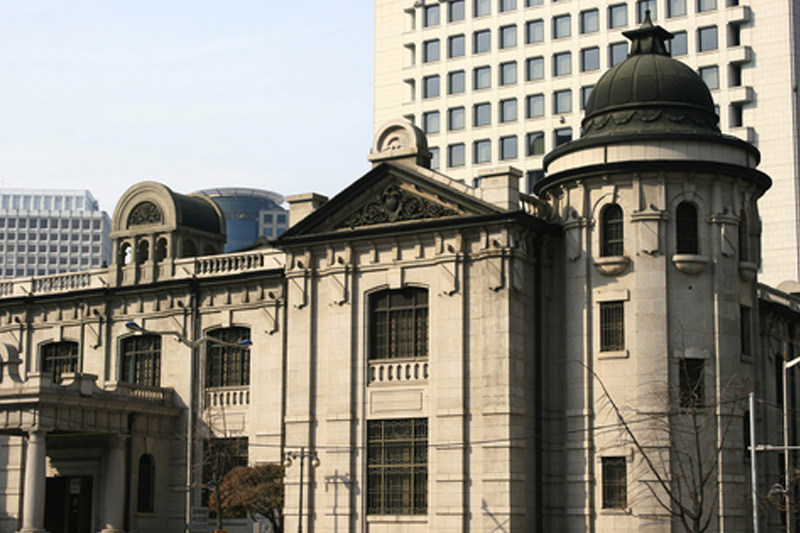(Bloomberg) -- The Bank of Korea’s interest-rate decision on Thursday is dividing economists, highlighting the challenge of forecasting the outcome of a central bank meeting held without a governor for the first time.
Out of 21 surveyed economists, 11 see the BOK lifting its key rate by a quarter percentage point to 1.5%, while the others expect the board to stand pat. The bank’s nominated new Governor Rhee Chang-yong is unable to attend the meeting as he is still to undergo a parliamentary confirmation hearing.
The six-member board will be left to judge the risks of hiking to rein in inflation or holding to avoid further dragging on already slowing economic momentum. The central bank paused in February to assess the impact of its three rate increases since August.
A further complication is the backdrop of a political transition as President-elect Yoon Suk Yeol prepares to take office in May. While his administration’s broader agenda is still unclear, Yoon has pledged to tackle inflation.
“The risk of further upward pressure in prices remains high, but the downside risk to growth is somewhat limited,” said Min Joo Kang, an economist at ING who sees a hike. “Both the current and future governments set price stability as a policy priority, which will support the BOK’s efforts to curb inflation.”
Inflation hit a decade-high 4% in March and consumer inflation expectations have climbed to levels last seen in 2014. The BOK, following last week’s CPI data, scrapped its February forecast of 3.1% inflation for the year and warned price growth would likely stay in a 4% range for the foreseeable future.
The price rises risk damping momentum in a consumption-led recovery that authorities had sought to buttress by relaxing restrictions on public activity.
Underscoring the uncertainty of what the BOK’s board will decide tomorrow, a survey of 100 financial professionals conducted early this month found them split down the middle on rates being raised or left unchanged.
Rhee, who will undergo his parliamentary confirmation hearing on April 19, has made it clear he sees inflation as an immediate threat. The nominated new Finance Minister Choo Kyung-ho told reporters Sunday that taming inflation was an “urgent task.”
With an economy heavily dependent on trade, South Korea is exposed to fallout from Russia’s war on Ukraine. Rising commodity prices are eroding the bottom lines of Korean companies that drive the economy, while higher imports costs were reflected in a renewed trade deficit in March.
China Disruptions
Adding to concern are ongoing disruptions to global supply chains from China’s efforts to stem the spread of omicron through wide-reaching lockdowns. In Europe, German business confidence plunged last month after Russia’s invasion of Ukraine sent energy prices soaring.
As the war in Ukraine intensified, the BOK has increasingly pointed to hurdles to economic expansion even as it maintained a focus on asset bubbles and price gains. On April 4, Acting Governor Lee Seung-heon highlighted “downward pressure” on economic growth as well as upward pressure on prices.
Joo Sang-yong, widely considered to be among the more dovish members of the board, will chair Thursday’s meeting and handle the press conference after the rate decision.
In minutes of the February meeting, Joo was likely the board member who called for caution in combating inflation and warned pressures on prices could quickly reverse once supply chain issues resolve, said Roh Hyun-woo, a strategist at Hanwha Asset Management. The BOK declined to comment on whether that was the case.
The minutes showed multiple board members expressed concern about tensions brewing over Ukraine at the meeting on Feb. 24, which was held hours before Russia actually invaded.
“We expect the board to sound hawkish on its inflation assessment, though some of this hawkishness may be neutralized by comments about rising downside risks to growth,” said Angela Hsieh, an economist at Barclays (LON:BARC) Bank.
The BOK announces its policy decision at around 10 a.m. in Seoul, followed a little over an hour later by a press conference that provides the names of any dissenters.
©2022 Bloomberg L.P.
